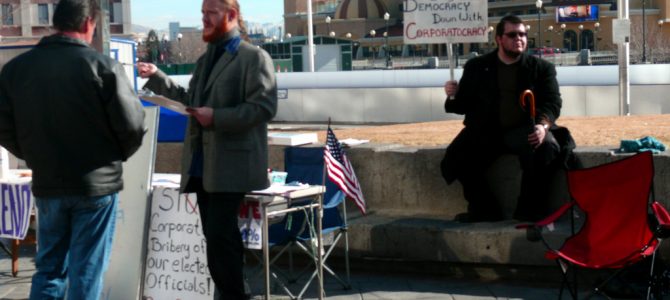
Most Americans would probably rank liberty and equality as our most important political values. These competing principles appear in our founding documents and have defined American politics since the early twentieth century.
But below the surface, other values clash, illuminated by two centuries of Supreme Court jurisprudence. A multi-million-dollar industry exists to convince (and force) Americans to accept political transparency as indispensable and privacy as dangerous. Disclosures have their place, but advocates of these policies—rarely targets themselves—ignore their price and limited place in the constitutional system.
In nonprofit advocacy, disclosure often enables harassment and intimidation for those whose stances clash with nation’s cultural elite. Historically, such disclosure also aimed to deter those who pushed for social change and civil rights.
Handing Aggressors a Ready-Made Enemies List
Two recent examples show the “reformer” industry’s extremist push to abolish donor privacy. When Education Secretary Betsy DeVos’ nomination appeared in doubt, the Center for Public Integrity ran the following scary headline: “Secret money fueling pro-Betsy DeVos ad campaigns.” DeVos wasn’t a candidate; had no potential votes or other goodies to offer these nonprofit supporters—Club for Growth and America Next—and had plainly stated her policy goals. Websites from both nonprofits show agreement with her policies. Thus, the public could gain nothing by exposing these donors. On the other hand, teachers unions would get a ready-made enemies list.
Elsewhere, California demanded 501(c)(3) charity Americans for Prosperity Foundation reveal their Schedule B donor list to operate there. AFP sued on First Amendment grounds. The state was supposed to keep the lists secret, but didn’t. The court found the state had inadvertently published almost 1,800 Schedule Bs. When asked why, a state employee complained separating confidential documents was “tedious” and “boring.” The trial court found harassers had menaced AFP supporters for years. The case is now before the Ninth Circuit.
Disclosure laws are supposed to monitor government, not private citizens. The public should know if a corporation, union, or wealthy individual with business before Senator X’s committee spends millions advocating his reelection. But the First Amendment protects nonprofit donors from public glare in part because they may take unpopular or controversial stances.
Buckley v. Valeo, the seminal 1976 political law case, recognized this. The Supreme Court approved electoral disclosure, but only after it acknowledged the drawbacks citing its previous nonprofit cases: “[W]e have repeatedly found that compelled disclosure, in itself, can seriously infringe on privacy of association and belief guaranteed by the First Amendment. . . disclosure may even expose contributors to harassment or retaliation. These are not insignificant burdens on individual rights . . .”
When Transparency Is a Ruse for Intimidation
Transparency benefits disappear when spending is outside electoral politics. It serves only to harass and menace. Transparency-pushers admit this. The Anti-First Amendment group Campaign Legal Center commenting on the AFP case states: “[AFP] is attempting to escape general laws regulating tax-exempt groups simply because its donors would prefer to remain anonymous and avoid public criticism for their political stances. Permitting the wealthy and powerful to exempt themselves from disclosure to avoid a critical public response would eviscerate political disclosure laws and undercut the free-flow of information and robust debate the First Amendment is meant to protect.”
Of course, the “wealthy and powerful” aren’t the only ones forced to absorb “critical public responses.” As little as $100 earned California Prop 8 supporters lost jobs, vandalized property, continual satellite views of their homes, powdery substances, and urine-based protests.
Allocating rights via wealth gradients is not only unconstitutional but also ugly. Envy-fueled threats and intimidation masquerading as “public criticism” don’t encourage robust debate, they eliminate it. People in power recognize this. Senate Minority Leader Harry Reid spent 2014 trying to hold power by demonizing private citizens who disagreed with him. When a cultural mob consisting of government, media, and academic elites deem which speech is acceptable, robust debate is impossible. Political intimidation becomes policy. Speakers are silenced, and that’s the aim.
Technology allows our basest instincts to flourish with nasty precision. Networks of insta-mobs now mobilize in minutes. Protestors violently blocked DeVos from visiting a DC school. Former President Obama reportedly has a 30,000-strong legion deployable at the ready. So-called disclosure laws fuel the mob.
Two centuries ago, Tocqueville marveled at America’s organic, spontaneous civil society. Today more than one million groups thrive under our donor-protected system. Subjecting these donors to the harassment of today’s continual outrage machine serves no legitimate ends.








